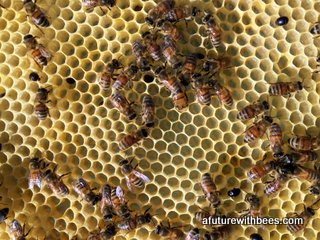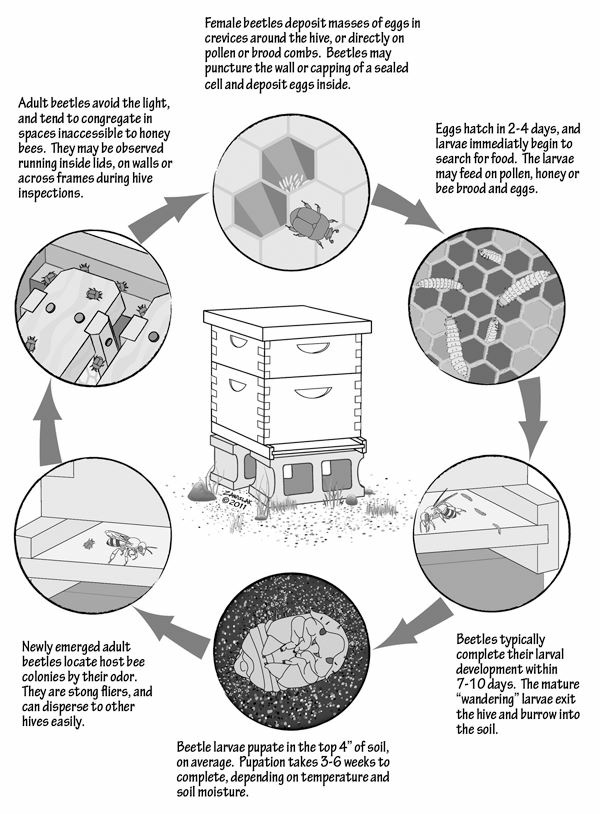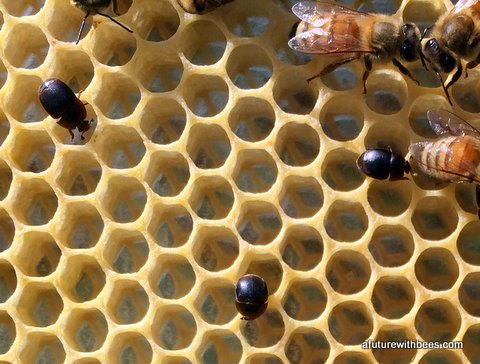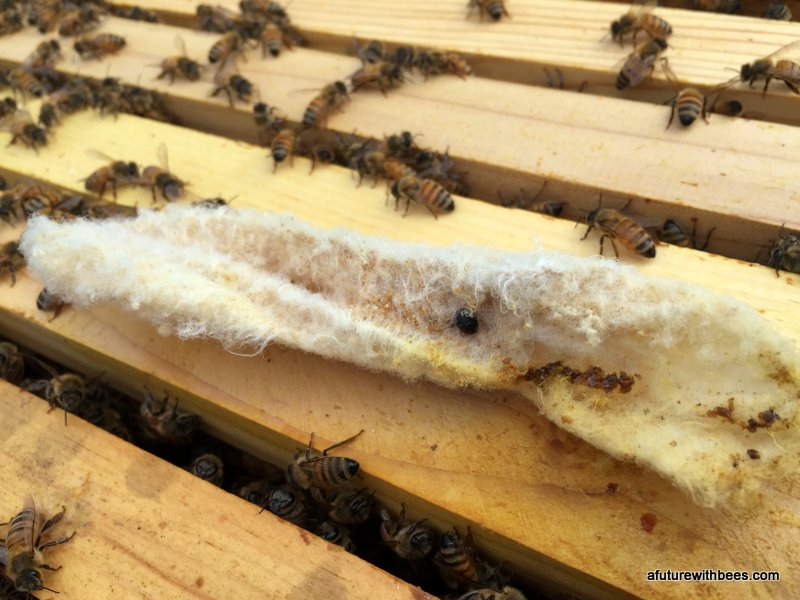I have seen a lot of discussions on hive beetles and many people identify hive beetles as a major concern. They go to extreme measures to combat hive beetles and spend lots of time, money and concern with these little pests. In our beekeeping experience we see hive beetles only as dangerous to a colony of bees as a tick is dangerous to the life of a person (leaving out diseases). (Please review the video below for more details.)
UPDATED 2016 - While I still believe in everything written in this article this year has been very different. For the first time we are finding very strong hives overcome by hive beetles. Some we have lost and others had to be restarted without all their resources. We are not sure if it’s the green spring and early summer or the humid heat but we do know that hives have been under more serious attack from hive beetles this year. Our focus to save the colonies has been to stringently manage space, use beetle traps and even swifter/microfiber cloths. Space is a big concern if the bees have a larger area to patrol that they are not using it is wasting resources and limiting the bees ability to manage the invaders. One final note If you cover your screen bottom boards with signboard it is a good idea to open these up and not allow them to be a beetle refuge. Back to the article...
A bee colony growth is pretty much a bell curve, with the growth starting with the first pollen and nectar collected in the Spring. The queen begins laying more eggs and this fuels 

When I hear someone say "hive beetles killed my hive", I know that hive had some other serious problem long before the beetles. Beetles are only able to reproduce and hurt a hive after that hive has become so weak that it can no longer defend itself. They are opportunistic pests this far north. Only is the southern states or more tropical climates can hive beetles take over a hive.
What can I do to help my girls with hive beetles? Here in MO you do not have serious numbers of hive beetles until late in the summer. Mid July - October seem to be the worst months and demand the most concern.
What I do to help my hives:
- Make sure I only keep strong healthy hives and don't just "hope" a weak hive will get better
- Don't be afraid to remove, combine or re-distribute a weak hive
- Feed those hives that need feeding before they are too weak to defend themselves
- Open my hives only as Required between mid-July and early October. Bees create propolis prisons for the hive beetles and keep them locked in there. When we remove the lids and move the frames, we release the beetles from the propolis prisons.
- When I do have to open my hives, I kill all the beetles I can - be quick! they fly fast!
- Finally, do not leave to much space on a hive that the bees cannot patrol. If I added an extra honey super in June and they are not using it....remove it. Empty frames and empty boxes give hive beetles many places to hide and make it diffucult for the bees to contain them.
Alternative methods I have no issues with:
- Beetle blaster traps - they do work but don't spill the oil in your hive
- Microfiber or used unscented dryer sheets - I have seen them work well for some people and are limited danger to bees
Long story short; Keep strong colonies of bees and you dont have to worry about small hive beetles. Yes, you will still see them in the hive but the bees control them just fine in this area.
Click the video below to hear Jeff give you more details about hive beetles.
#savethebees #bees #afuturewithbees
Click Image to see the Gallery


